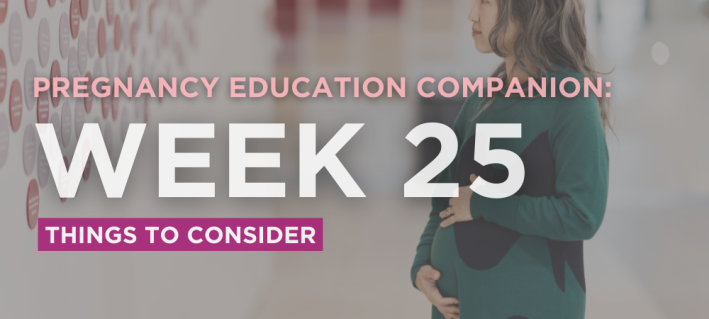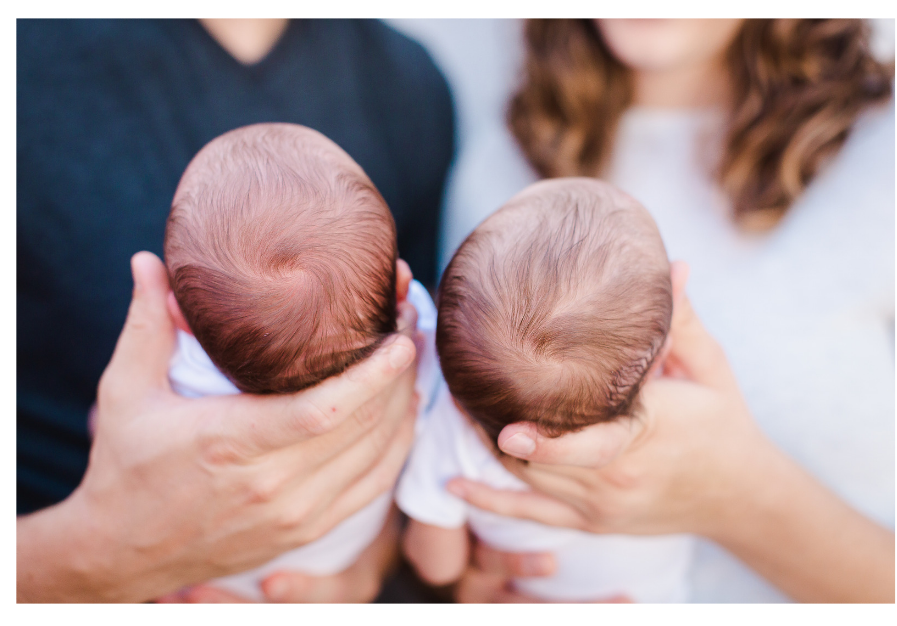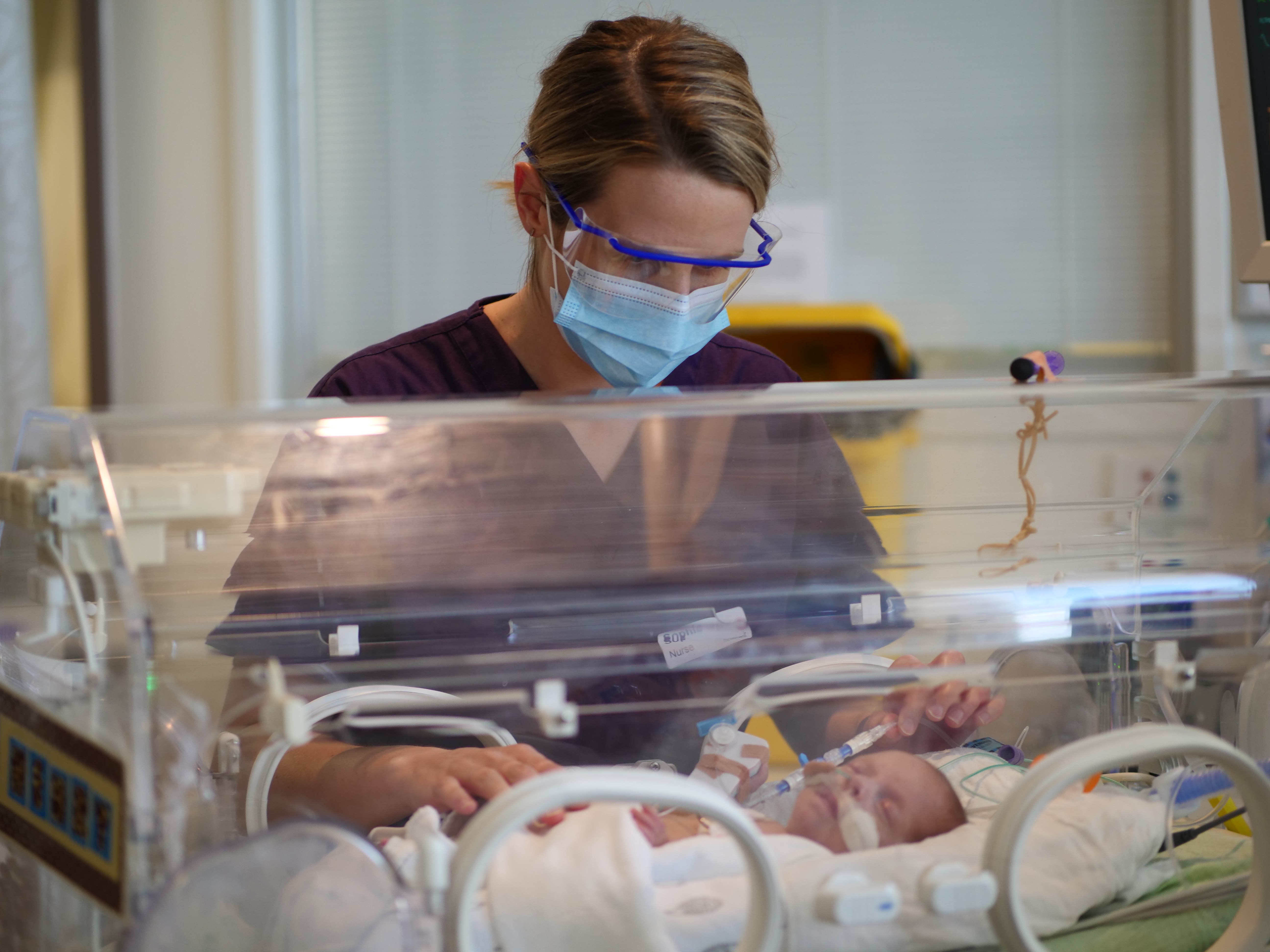
If you don't want to receive this information, please call (03) 8345 3272 or email patientexperience@thewomens.org.au
Welcome to week 25!
This week, we’re reminding you to look at our Childbirth Education options and book into classes if interested.
We’re also discussing topics you may not have thought about, like multiple births (twins or more), having a premature baby, and some special services we offer our patients.
Part 1: Childbirth Education: Reminder to book a program
If this is your first baby, you’ve hopefully looked into Childbirth Education options and booked a program.
We covered this thoroughly in weeks 20 to 21, so you can go back to revisit it if you’re interested. You can also visit our webpage on Online childbirth education classes which includes links to the booking site.
Please remember to choose a program that finishes about 4 to 6 weeks before your due date.
For specific questions, email: childbirth.ed@thewomens.org.au or leave a message at (03) 8345 2143.
Please note, our office operates part-time during business hours. We'll respond to your enquiry as soon as possible.

We also have the following resources on our website:
- 10 free online videos that help you learn about and prepare for labour, birth, and early parenthood.
- Our booklet - Birth and babies for first time parents - designed to support information covered in our online childbirth education program.
- Virtual tours of the hospital for maternity patients
- The Women’s fact sheets on a range of health topics.
Alternatively, you may wish to seek a private educator.
Part 2: Experiencing a multiple pregnancy – twins or more

Having twins or more is becoming more common in Australia. While most babies are born healthy, carrying more than one baby comes with increased risks.
If you’re pregnant with twins or more, you’re more likely to experience nausea, heartburn, vomiting, and backache.
As your pregnancy progresses, there is a higher chance of developing gestational diabetes and anaemia. Anaemia means you don't have enough red blood cells, which can make you feel tired and weak. These conditions can be managed with regular clinic visits and proper care. Preterm labour (before 37 weeks) is also more common.
Staying fit, healthy, and managing weight gain can help your body handle the demands of a multiple pregnancy better. Your health professionals will see you more frequently, with potentially more visits, scans, and tests.
Planning for the birth of your babies will involve discussing options like a vaginal birth or an elective (planned) caesarean section.
Attending a Childbirth Education program, especially one designed for twins and more, can provide valuable information and support.

You can breastfeed your babies successfully with support from our midwives and lactation consultants in the Breastfeeding Centre, located on Level 4 at the Women’s.
You can also find information on breastfeeding twins, triplets, quads, or more by visiting the Australian Breastfeeding Association website.

Having more than one baby can be joyful, but it can also be hard work and very tiring.
You’ll need support from others. Consider seeking help from friends and family, your local council or community health centre, and through the organisations listed below:
Also, contact Services Australia (formerly Centrelink) to see if any extra financial support is available.
Part 3: Premature babies - born before 36 weeks

If your baby is born early, they may stay with you, go to a special care nursery (SCN), or need care in our Newborn Intensive Care Unit (NICU). Where they go will depend on their health at birth and how early they were born.
The Women’s has both a SCN and NICU for newborns.
This can be a stressful time for parents. The hospital environment may feel overwhelming, and it’s natural to feel anxious. It’s important to rest, eat well, and communicate with your partner or support person and the healthcare team.
Having an unwell or preterm baby can affect your confidence in parenting your baby. But there are many ways you can be involved with your baby’s care, like talking, reading, and singing to them, changing their nappies, providing skin-to-skin care, and holding them when possible.
Breastfeeding may or may not be possible in the beginning. Our midwives will help you with expressing milk and feeding your baby.
As your baby grows and you gain knowledge and skills, your confidence will also grow.
In addition to our staff, there are other organisations that provide support, including:
- Life’s Little Treasures Foundation
- Pregnancy, Baby and Birth
- Victorian Infant Collaborative study – a long-term study of infants born preterm

Babies born very early, or who are unwell, are very sensitive to their surroundings and how they’re handled. They need to conserve energy for getting better and growing.
Inside your uterus, your baby was warm, snug, and securely wrapped in its walls. Although they can move around, they are gently contained, which helps them return to a curled-up position. They’re used to gentle movement, but not sudden ones.
Their hearing is well-developed and they’re familiar with the sound of your voice. In fact, your voice will be one of the most comforting sounds they hear after birth.
Their vision is still developing, so bright light can be too much at this stage.
Your baby will appreciate:
- hearing you talk and sing to them
- being securely wrapped and positioned so they feel secure (a nurse can help with this)
- skin-to-skin cuddles when it’s possible
- being moved gently and in a way they feel supported
- having their upper body wrapped during nappy changes.
Here are some tips while your baby is in the hospital:
- take lots of photos
- keep a diary and record milestones
- collect cards and other mementos
- if you can’t be there, call the staff and leave a camera for them to take photos
- get other siblings, family, or friends to make cards.
For more information on premature babies:
- Early infant development fact sheets – this information was developed by our NICU allied health team. Several of the fact sheets are available in other languages.
- Raising Children – for a range of information on premature and sick babies.
We hope you have found this information helpful.
If you have any health concerns please talk to one of your health care professionals – midwife, General Practitioner (GP), hospital doctor, etc.
There will be more to read and learn next week, in Week 26. Stay safe and well.